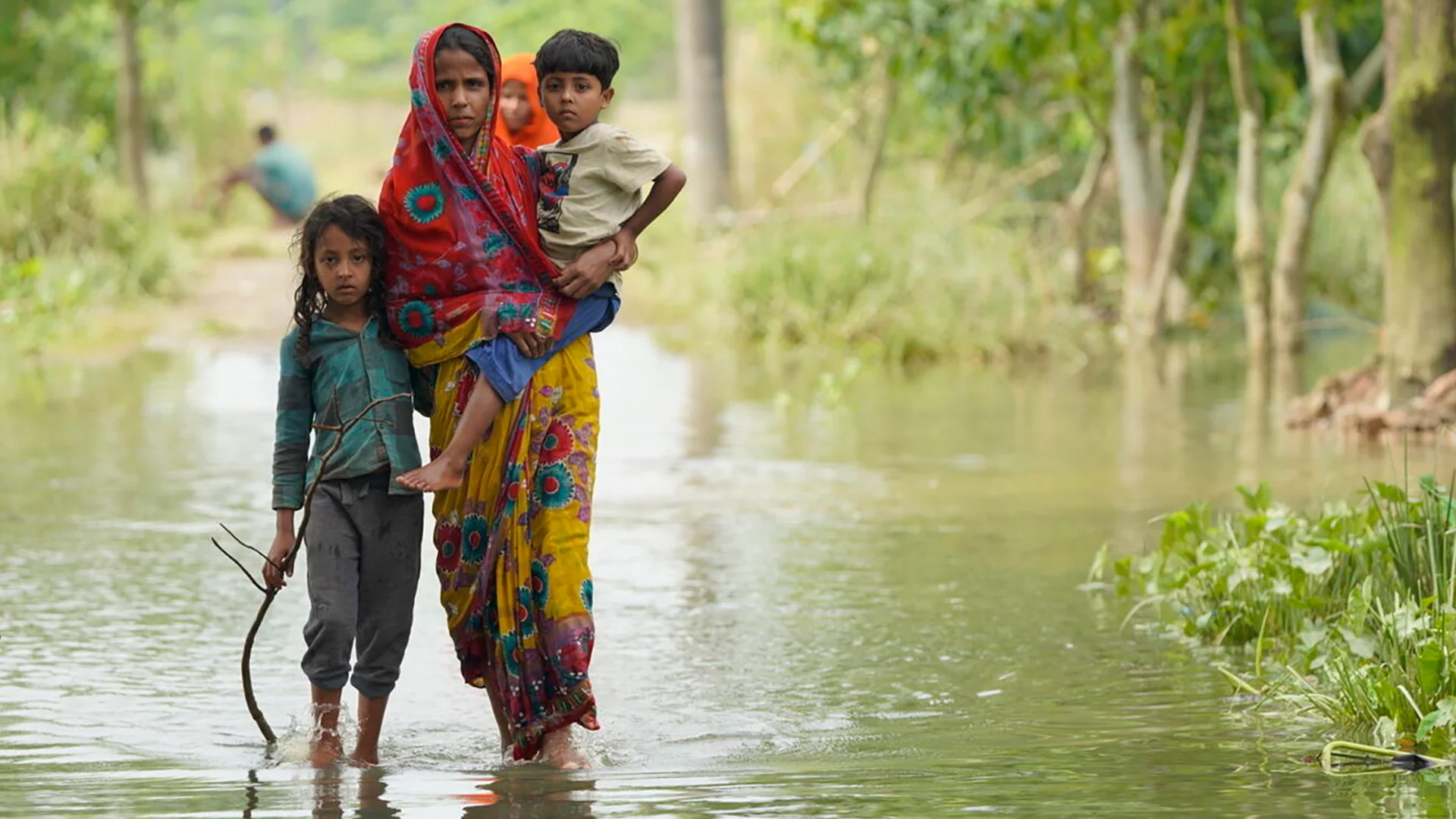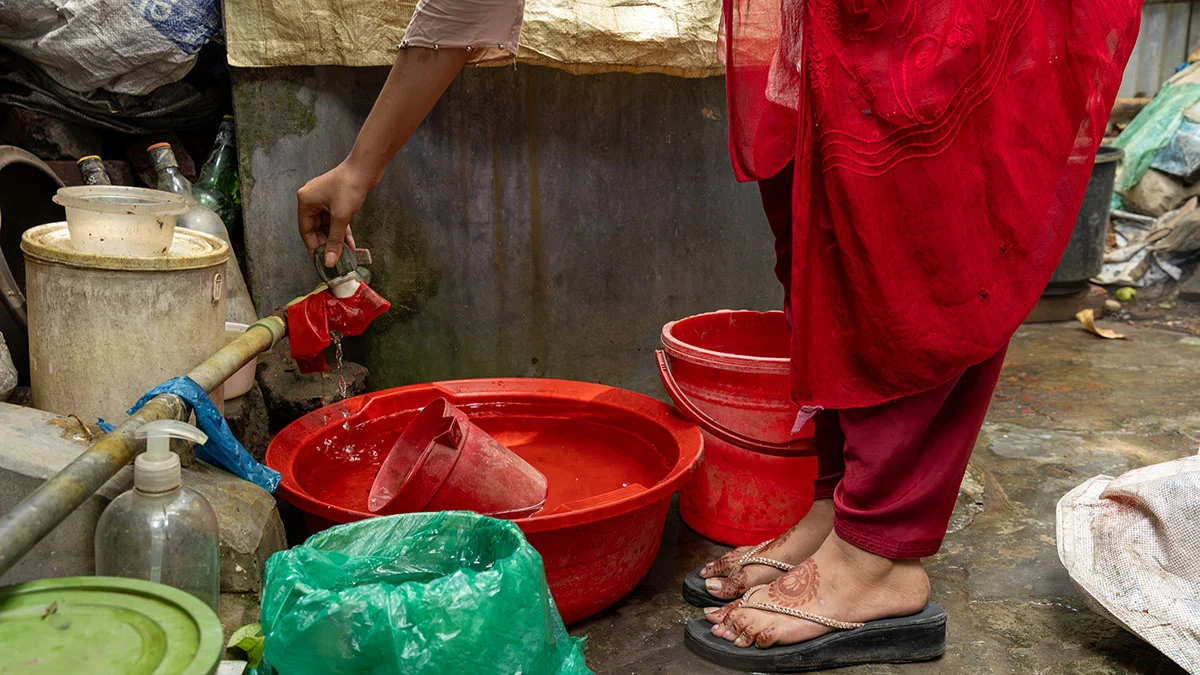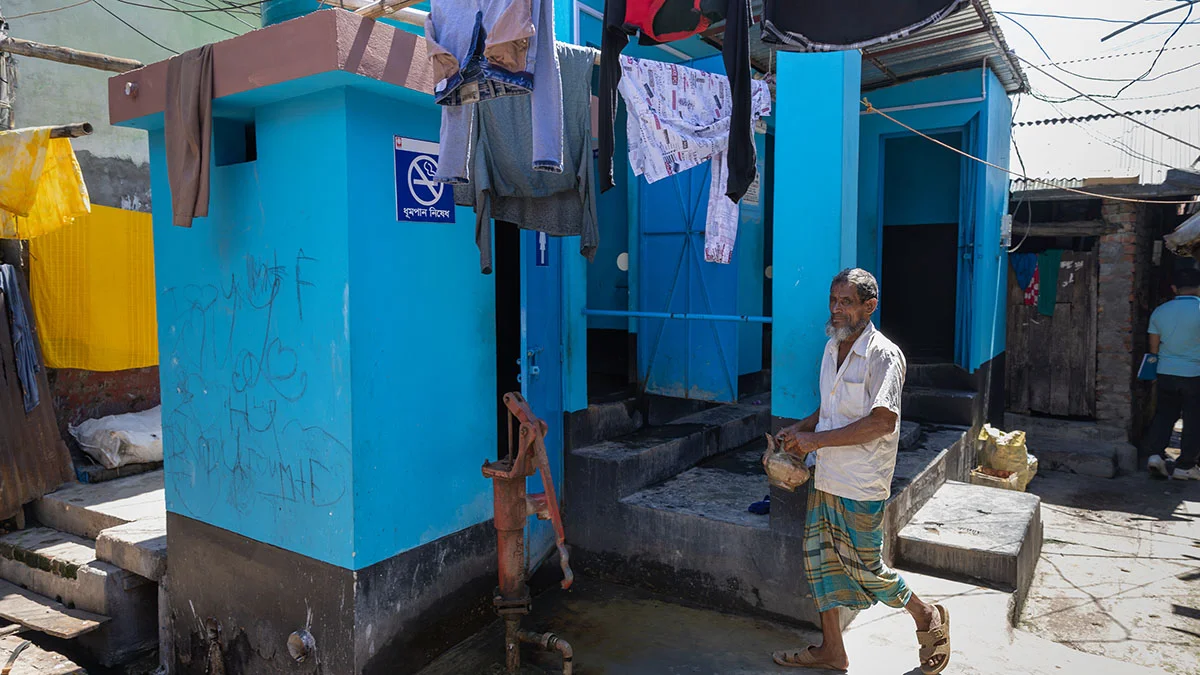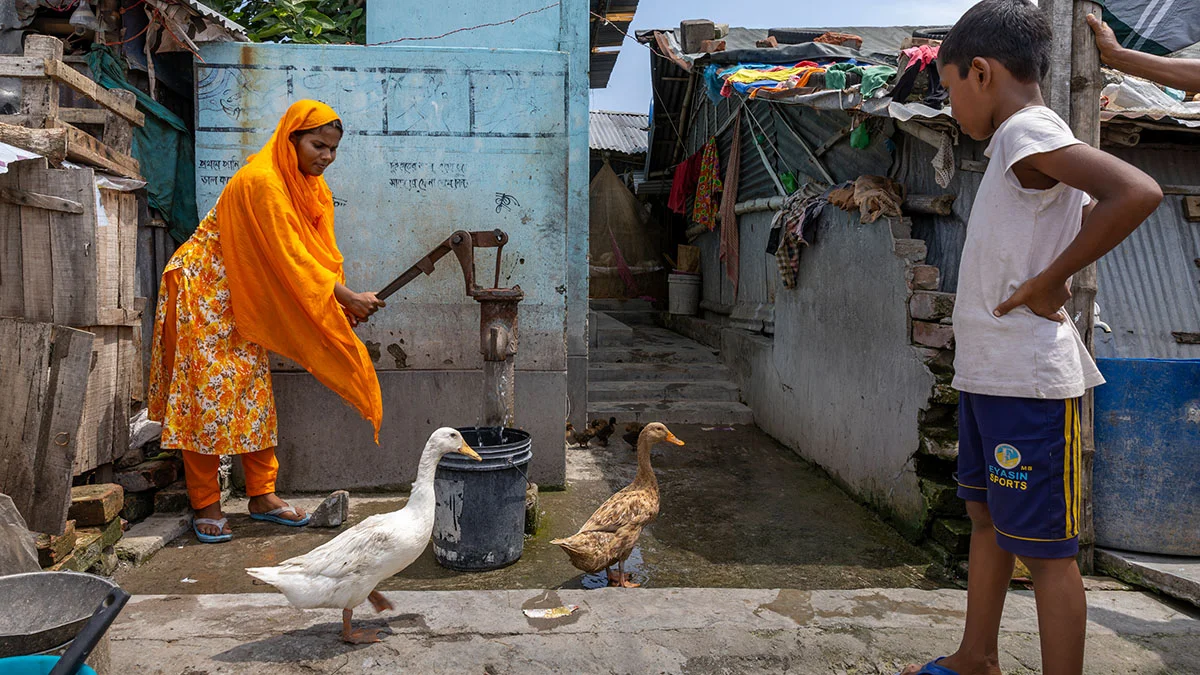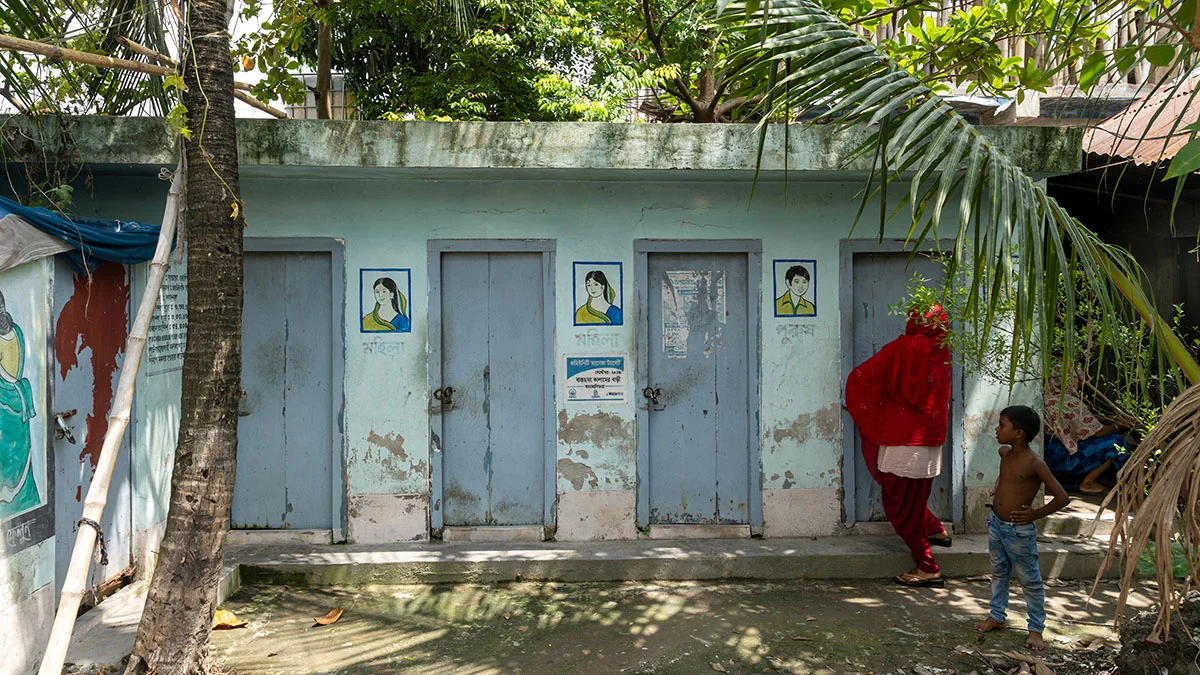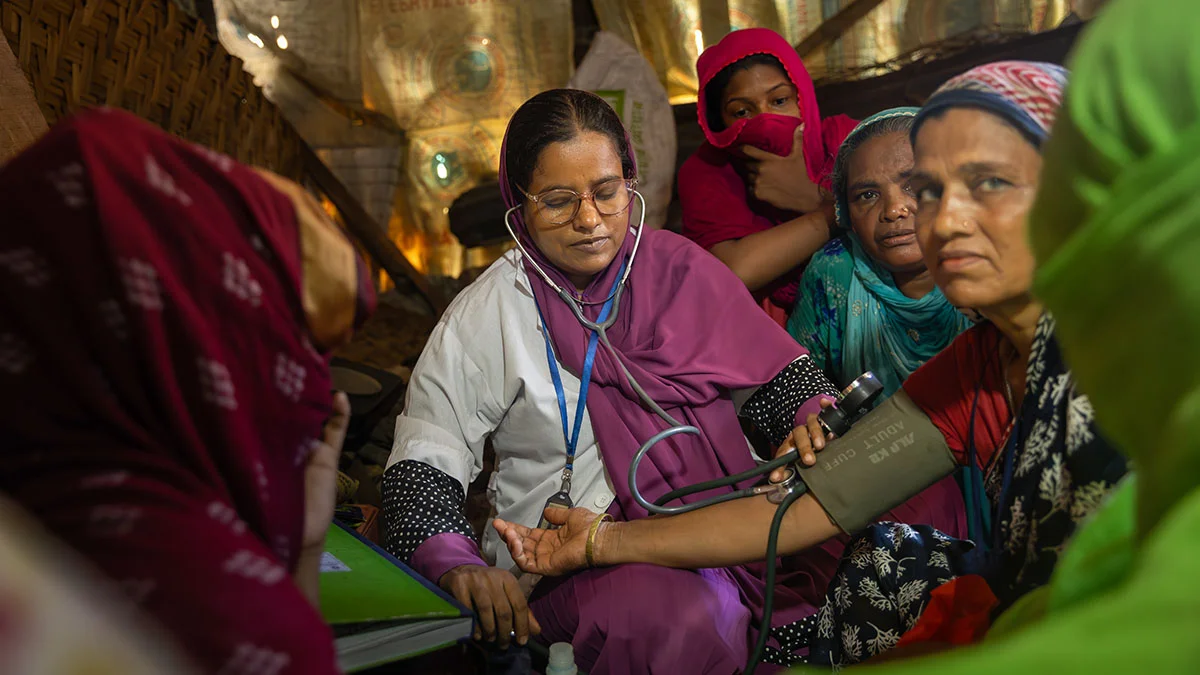The effects of climate change are impacting the lives of hundreds of thousands of children in Bangladesh. Devastating floods and landslides happen every year. Rising sea levels are causing saltwater intrusion to the country’s groundwater. UNICEF is providing families with safe drinking water and is working to ensure a sustainable water supply that withstands the effects of climate change.
The situation
Bangladesh is one of the countries most vulnerable to climate change. Most of the country lies just a few meters above sea level. And that’s rising, and threatening to submerge one fifth of the mainland. Weather conditions have changed considerably, and there are now more and stronger storms and surges. Floods are causing rivers to overflow, and more sea water is making its way inland from coastal areas. This and the landslides caused by river erosion are destroying croplands and causing saline to enter the groundwater.
More and more families are fleeing to the cities in the hopes of finding security, but landing in overcrowded slums that lack adequate infrastructure. Clean, safe drinking water is rare, as are working draining systems. This is especially hard on children. Drinking dirty water can cause them to contract life-threatening diseases.
How your donation helps
The 2023 Sternenwochen helps UNICEF provide relief to 80,000 children and their families living in the slums of Khulna in southern Bangladesh, giving them access to safe water and a drainage system that can withstand the effects of climate change. For example, UNICEF is installing human-powered water pumps that won’t break down during flooding. UNICEF is also creating additional water supply points to improve access to safe drinking water.
High priority is also being given to local health centers with running water and clean sanitary facilities, allowing sick children to receive better medical treatment and giving them a greater chance of survival.
